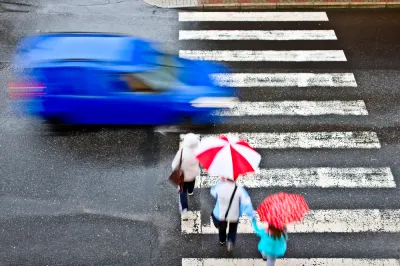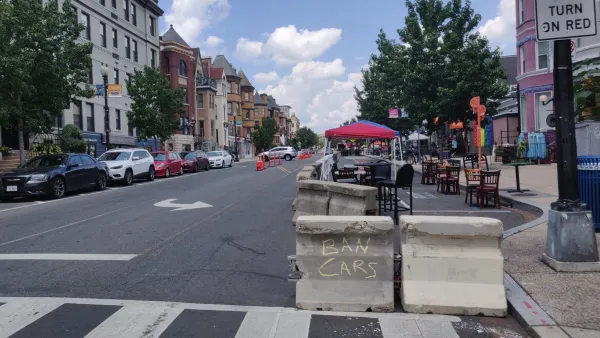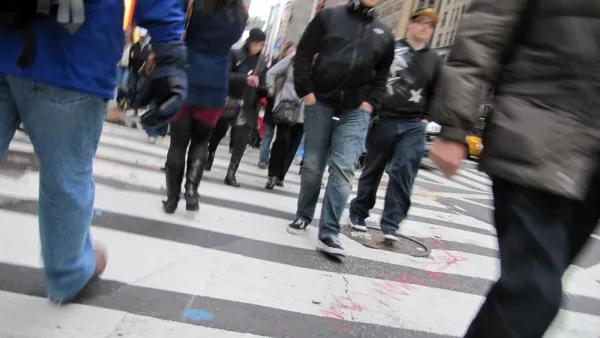Angie Schmitt, former editor at Streetsblog USA, has written a new book about pedestrian fatalities, which works to dispel some of the myths about traffic safety in the United States.

Angie Schmitt's new book, Right of Way: Race, Class, and the Silent Epidemic of Pedestrian Deaths in America, sets out to answer a question to which many people believe they have the right answer: What causes the 50% increase in pedestrian deaths in the last decade, and what can we do to reduce these deaths?
According to Schmitt, most people will point to cell phones. But that's not accurate. "Instead, it’s a convergence of trends: Cars are getting bigger, drivers are going faster, roads are getting wider, and more people are moving to transit-lacking suburbs and Sun Belt cities," writes Alissa Walker. Walker goes on to share the stories of two mothers whose children were killed by drivers in order to illustrate the ways in which race informs the response to such tragic events.
Crashes can be prevented by way of improving crosswalks, the use of medians, and narrowing traffic lanes. "The bigger challenge, Schmitt argues, is addressing the systemic racism built into cities," says Walker. Inherent to the idea of pedestrian safety in the United States is the concept of enforcement. The idea that you can shame or finger wag someone out of engaging in such deadly and dangerous behavior as speeding is simply not true or effective, according to Stockholm official Daniel Firth.
Instead, the United States should follow something closer to Sweden’s Vision Zero program, which prioritizes data and infrastructure redesign to eliminate traffic deaths, suggests Schmitt. Even more importantly, it needs to be a people-centered process to change the fact that, for decades, "transportation decisions have now been made without proper representation from the communities most affected, from local agencies to the government bodies that set the country’s policy agenda," as Walker puts it.
FULL STORY: Walking Is Increasingly Deadly, and Not Because People Are on Their Phones

Analysis: Cybertruck Fatality Rate Far Exceeds That of Ford Pinto
The Tesla Cybertruck was recalled seven times last year.

National Parks Layoffs Will Cause Communities to Lose Billions
Thousands of essential park workers were laid off this week, just before the busy spring break season.

Retro-silient?: America’s First “Eco-burb,” The Woodlands Turns 50
A master-planned community north of Houston offers lessons on green infrastructure and resilient design, but falls short of its founder’s lofty affordability and walkability goals.

Test News Post 1
This is a summary

Analysis: Cybertruck Fatality Rate Far Exceeds That of Ford Pinto
The Tesla Cybertruck was recalled seven times last year.

Test News Headline 46
Test for the image on the front page.
Urban Design for Planners 1: Software Tools
This six-course series explores essential urban design concepts using open source software and equips planners with the tools they need to participate fully in the urban design process.
Planning for Universal Design
Learn the tools for implementing Universal Design in planning regulations.
EMC Planning Group, Inc.
Planetizen
Planetizen
Mpact (formerly Rail~Volution)
Great Falls Development Authority, Inc.
HUDs Office of Policy Development and Research
NYU Wagner Graduate School of Public Service




























